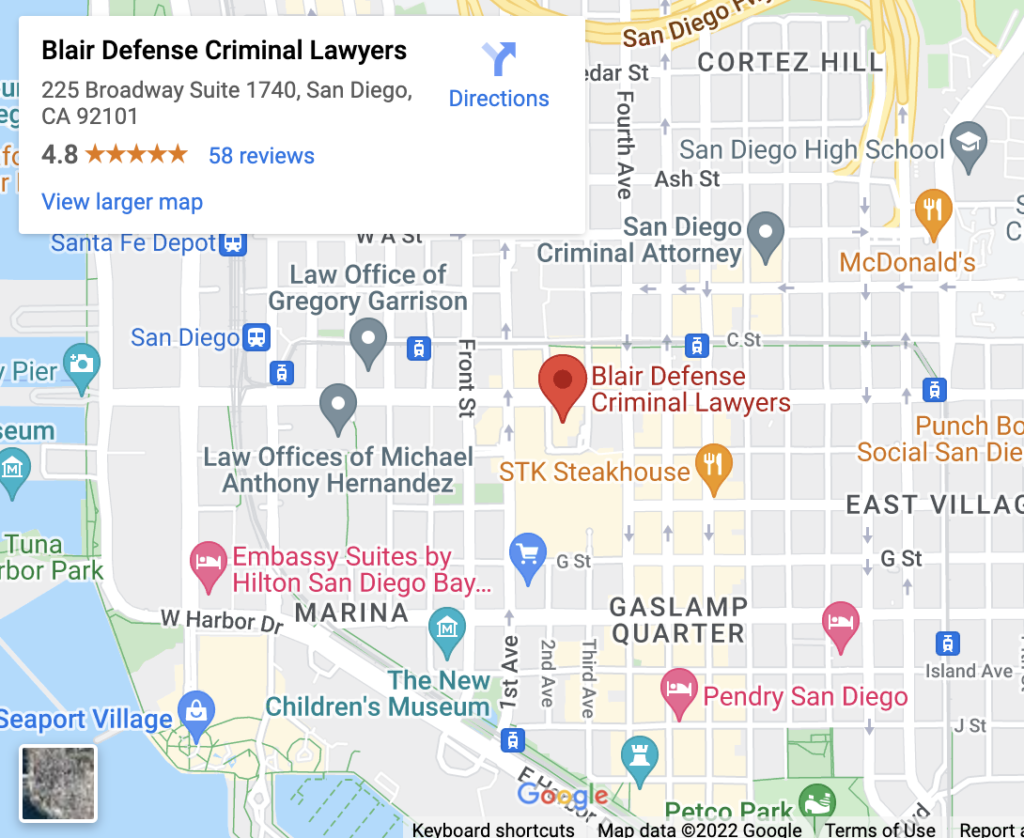
Criminal trespass involves entering another party’s property or a restricted area without permission. It is a serious criminal offense that could result in significant jail or prison time. Understanding California’s criminal trespass laws can help you avoid making a costly mistake.
What Is Considered Criminal Trespass in California?
The California Penal Code defines criminal trespassing as entering and/or remaining on someone’s property without a legal right or permission. Criminal trespass can be charged as a non-criminal infraction, misdemeanor, or felony offense, depending on the circumstances and facts surrounding the conduct.
Trespass as a Non-Criminal Infraction
You can be guilty of trespass as a non-criminal infraction if you willfully entered someone’s land without permission and there were no trespassing signs posted or the land was enclosed by a fence. The fine for trespass as an infraction is usually $75 for the first offense and $250 for the second offense on the same property.
You can be charged with criminal trespass as an infraction, even if you did not know you were trespassing or you did not intend to trespass. The state does not need to prove intent for you to be guilty of the infraction.
Misdemeanor Criminal Trespass
Many of the trespass charges in San Diego are misdemeanor charges. Penal Code 602 PC lists numerous activities that could result in criminal trespass charges.
Examples of misdemeanor trespass listed in the code include, but are not limited to:
- Entering someone’s property without permission
- Driving on property not open to the general public
- Cutting down or destroying timber or wood on someone’s land
- Refusing to leave property belonging to someone else after being told to leave
- Knowingly skiing on a trail that is closed to the public
- Tearing down enclosures or fences
You can be guilty of misdemeanor trespass if you willfully enter another party’s property without the legal right or permission to do so. A misdemeanor trespass charge is punished by up to six months in county jail and/or a maximum fine of $1,000.
Felony Criminal Trespass
Felony trespass is also known as aggravated trespass.
You can be charged with felony trespass if you:
- Made a credible threat to cause serious injury or harm to someone with the intent to cause them to fear for their safety; and,
- Enter the person’s property or workplace within 30 days of making the threat.
Felony or aggravated trespass is a wobbler. Therefore, the prosecution can choose to charge you with a misdemeanor or a felony.
The penalty for misdemeanor trespass is up to one year in county jail and a maximum fine of $2,000. The penalty increases for felony trespass to up to three years in state prison and a maximum fine of up to $10,000.
Defending Yourself Against Charges of Criminal Trespass in San Diego, CA
Contact a San Diego trespassing attorney if you are charged with criminal trespassing. They’ll explain the criminal charges and your options for a defense. Then, they will investigate the circumstances surrounding the charges to develop a defense strategy.
Depending on the facts of the case and the charges against you, there could be one or more defenses to criminal trespass charges. Some of the defenses that could be applicable in your criminal case include:
Lack of Signs and/or Fencing
You might not know that you were entering another party’s property if there were no signs warning people to stay out. Likewise, a lack of fences, gates, and other barriers to indicate you are entering someone else’s property could be a defense. Your attorney might argue that without these elements, there is no willful intent to trespass.
You Did Not Willfully Enter the Property
Most charges for criminal trespass require the defendant to willfully enter the property. Therefore, if you were coerced to enter the area or were lost, you did not intend to enter the property without permission.
You Had a Legal Right or Permission to Be on the Property
In some situations, you might argue that you had the right to be on the property. For example, a tenant has the right to enter the property that they lease. Likewise, property owners have the right to enter land when they are on the title to the property.
Likewise, if a property owner gives you permission to be on the property, you could argue you were not trespassing. Also, if you are lawfully authorized to be on the property, you can argue you were not trespassing. For example, a government employee sent to inspect property should not be guilty of criminal trespass if they are acting within the scope of their employment.
Schedule a Free Consultation With a San Diego Criminal Defense Attorney If You’ve Been Charged With Criminal Trespass
Criminal trespass charges should be taken very seriously. You could face significant penalties for a guilty verdict. Contact a San Diego criminal attorney at (619) 357-4977 for a free case review to discuss the charges against you.

